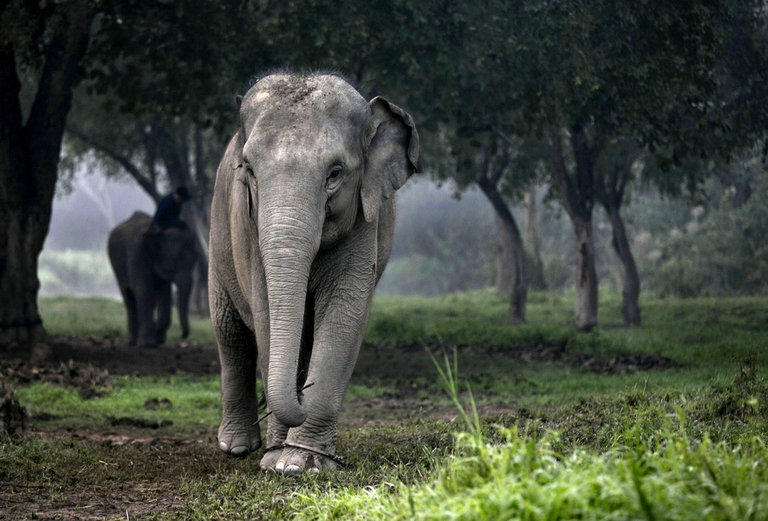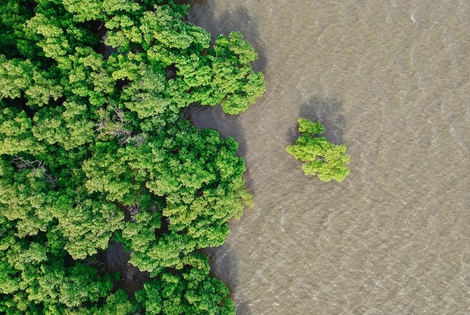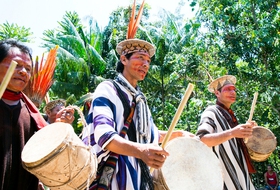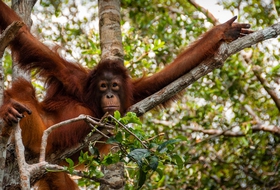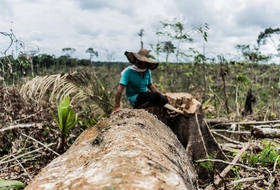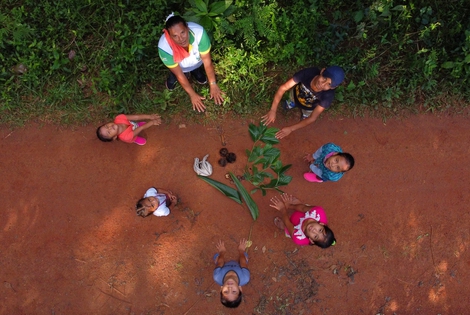
The Amazon became an alternative classroom during the pandemic. Now, the educational forest in Batraja, Bolivia, lives on to teach children and adults the value of nature.
L’iniziativa è nata con l’obiettivo di ripristinare la copertura forestale del Paese che ha perso quasi metà delle sue foreste.
The Earth was once covered with millions of immense forests that provided perfect habitats to a great variety of plant and animal species. Throughout history, though, humans started to cut down more trees than they planted, and the planet began turning barren.
Deforestation is a scourge afflicting the world and, besides jeopardising people’s livelihoods, it threatens many plant and animal species and contributes to climate change. Thailand has lost nearly half its forest cover over the past decades and decided to take action to make forests recover.
Thai government has launched a reforestation programme that provides airplanes and drones dropping “seed bombs”. These bombs are made with clay, compost and seeds.
Japanese botanist Masanobu Fukuoka established an ecological farming approach named natural farming (or “do-nothing” farming) and was the first to support the idea of bombing fields with seeds. Natural farming is based on the absence of ploughing and pesticides.
The first recorded “seed bombing” dates back to 1930, when airplanes had been employed to reforest some mountainous areas in Honolulu. The idea of adopting this approach on a large scale dates back to 1999 when Lockheed Martin, a company operating in the fields of aerospace engineering and defence, managed to plant 900,000 trees in a day by launching seeds from a military aircraft.
Too many bombs are dropped in many areas of the world causing death, pain and destruction. But thinking that these aircrafts could be instead used to create new lives and restore what we’ve destroyed gives us a glimpse of hope.
Siamo anche su WhatsApp. Segui il canale ufficiale LifeGate per restare aggiornata, aggiornato sulle ultime notizie e sulle nostre attività.
![]()
Quest'opera è distribuita con Licenza Creative Commons Attribuzione - Non commerciale - Non opere derivate 4.0 Internazionale.
The Amazon became an alternative classroom during the pandemic. Now, the educational forest in Batraja, Bolivia, lives on to teach children and adults the value of nature.
Our species took its first steps in a world covered in trees. Today, forests offer us sustenance, shelter, and clean the air that we breathe.
Bangladesh suffered widespread damage as a result of Cyclone Amphan. Yet the Sundarbans mangrove forest acted as a natural barrier protecting the country from further destruction, as it has done countless times before.
On top of a 2.4 million dollar compensation, the indigenous Ashaninka people will receive an official apology from the companies who deforested their lands in the 1980s.
The tapir was reintroduced into Brazil’s Atlantic Forest, the country’s most at-risk ecosystem. The species can play a key role in the forest’s recovery.
Forests are home to 80 per cent of the world’s terrestrial biodiversity. This year’s International Day of Forests highlights the urgent changes needed to save them.
After a legal battle that lasted two years, Indonesia’s Supreme Court has revoked the permit to mine for coal in the forests of South Kalimantan in Borneo.
The list of human and animal victims of the Australia wildfires keeps growing – one species might already have gone extinct – as the smoke even reaches South America.
Areas where the FARC guerrilla used to hold power in Colombia have faced record deforestation. Farmers cut down trees, burn land and plant grass for cows. Because, “what else can we do for a living here in the Colombian Amazon”? An intimate report from the heart of the felled forest in Caquetá.
